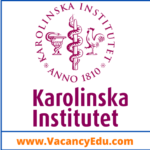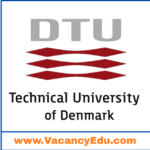Nottingham Trent University (NTU), England invites online Application for number of Fully Funded PhD Degree at various Departments. We are providing a list of Fully Funded PhD Programs available at Nottingham Trent University (NTU), England.
Eligible candidate may Apply as soon as possible.
(01) PhD Degree – Fully Funded
PhD position summary/title: Creating Digital Soundscapes: A study on identification, perception, and replication of musical tones on electric guitar
Digital technologies are coming of age for the electric guitar. The gold-standards for sound quality, set in the 1950s-60s, were until recently un-replicable. Now there exists faithful digital simulations of classic guitar amplifiers, without the unsustainable valve circuitry.
This project will provide the groundwork for a similar digital revolution in the guitar itself: the “pickup” – which transduces the vibrations of strings to electricity and dominates the sound of the guitar more than anything other than the strings. Like amplifiers, classic sounds originate from 1950s designs which boutique manufacturers copy. How the parameters of manufacture determine the pickup’s electrical properties, sound, and which aspects of that sound are important to the human ear, are poorly understood.
This project will investigate how design parameters affect the electrical properties, the sound, and people’s perception of the sound. This is made possible via collaboration across NTU Engineering, Psychology, Confetti Institute of Creative Technologies, and one of the UK’s leading boutique pickup manufacturers. This will facilitate the creation of digital tools that can simulate different pickups and enable any guitar to sound like any other, making desirable tones more accessible to musicians. It will also inform the industry about how design choices affect the sound, and which differences people can perceive, so it should improve manufacturing of real pick-ups. Thus, it will move forward both digital and analogue guitar technology.
Deadline : Friday 14 February 2025.
(02) PhD Degree – Fully Funded
PhD position summary/title: Second wind: Developing multi-disciplinary decision-support tools for adopting second-hand wind turbines in UK community energy projects
This project, titled “Second Wind: Developing multi-disciplinary decision-support tools for adopting second-hand wind turbines in UK community energy projects”, investigates the potential of adopting second-hand wind turbines for community energy projects in the UK. Using the Hockerton community wind turbine as a case study, it will apply a multidisciplinary approach that evaluates the socio-technical, economic, and environmental impacts of these initiatives.
The project will adapt life-cycle analysis (LCA), combined with problem structuring methods and statistical analysis, to develop a holistic sustainability evaluation framework tailored to second-hand wind turbines. By addressing technical, economic, and societal factors, this research seeks to assess whether the adoption of second-hand wind turbines aligns with circular economy principles and supports the UK’s net-zero goals.
Deadline : Friday 14 February 2025
View All Fully Funded PhD Positions Click Here
(03) PhD Degree – Fully Funded
PhD position summary/title: Balancing Supply and Demand: Developing a Net Zero Energy Framework for Difficult-to-Retrofit Buildings in Nottinghamshire
A key area of concern for NottsCC is how to improve the energy efficiency and heating controls of some of its poorest-performing building stock. Between the 1950s and 1980s, a consortium of East Midlands local authorities used a construction method called CLASP to build low-cost, lightweight buildings. Whilst revolutionary at the time, they contain Asbestos, which is a serious public health issue. Nottinghamshire has the highest number of CLASP buildings in the UK. They are poorly insulated and expensive to heat, but difficult to modify due to the asbestos. There are too many buildings in use with CLASP Construction for them to be replaced in one go, thus a strategy is needed to identify those which can benefit from energy efficiency performance improvements.
This PhD project aims to develop a framework to improve the energy efficiency of difficult-to-retrofit buildings within Nottinghamshire and raise awareness of NottsCC’s Net Zero activities. Different classes of CLASP buildings within the NottsCC portfolio will be reviewed to identify opportunities for energy efficiency interventions. Furthermore, an evidence-based guide on heating control systems for different building types will be developed to inform future heating system upgrades and new builds. The project will work with Inspire to raise awareness about NottsCC’s Net Zero work and to identify how local communities can contribute to the Net Zero journey.
This project has been co-created and is supported by researchers from Nottingham Trent University (NTU), the University of Nottingham (UoN) and partners at Nottinghamshire County Council and Inspire. The successful candidate for this project will be enrolled at the University of Nottingham.
Deadline : Sunday 2nd February 2025
(04) PhD Degree – Fully Funded
PhD position summary/title: Does Smartwatch-Induced Health Behavioural Change Improve Student Physiological Health, Psychological Well-Being and Academic Performance
Poor physical and mental health among students is a growing concern for universities. Students today are reporting poorer mental health at a rate seven times higher than a decade ago. The transition from high school to university also has consequences for physical health. The decline in physical activity during adolescence and young adulthood is well-documented, and this decline is pronounced among university students. As a consequence, university students are at an increased risk of poor mental and physical health. This presents health risks for students, and an increasing duty of care for universities.
It is well established that physical activity has positive consequences for mental and physical health. Investigating ways to ameliorate or reverse the decline in physical activity may be an important intervention for improving physical and mental health among students. Smartwatches are a cost-effective method for individuals to monitor and improve their health-related behaviour, for example sleep and physical activity. They are also popular among young people, and by extension students. The data captured by smartwatches can also be used to evaluate the effectiveness of mechanisms that influence physical and mental health. Despite the potential for smartwatches to improve student health and wellbeing, there has been very little research in this area.
The aim of this PhD will be to explore the potential for smartwatches to improve physical and mental health among students. The health data collected from the smartwatches, along with questionnaire data, will be used to model which behaviours are key drivers for improving health profiles. The multidisciplinary nature of this project will incorporate convergent methods for evaluating health and wellbeing, including psychometric, anthropometric and biological markers.
Deadline : Friday 14 February 2025.
(05) PhD Degree – Fully Funded
PhD position summary/title: Digital Conservation of Endangered World Heritage: Virtual Reconstruction of the Urban Landscape of the Ancient City of Thmouis, Egypt
The Digital Conservation of Endangered World Heritage: Virtual Reconstruction of the Urban Landscape of the Ancient City of Thmouis, Egypt, the project will digitally preserve the ruin of the ancient city of Thmouis, which spans over 90 hectares and features well-preserved Graeco-Roman architecture. The city was a significant urban centre in Egypt from the Hellenistic period until its abandonment in the 9th century AD, yet its role in history has largely been neglected. Today, the city faces threats from encroaching towns and environmental degradation and the important heritage is at risk.
The primary objective is to document the city’s current architectural state and create a digital relief model of the walls, temples, foundations, and other buildings. Utilizing satellite imagery, drone surveys, surface mapping, historical photographs, maps, and excavation data, the team will reconstruct streets, buildings, and the hinterland structures of the city. Multispectral imagery will help identify features obscured by time, while urban plans and historical records will guide the mapping of political divisions, including districts and industrial areas. Portions of the city, particularly those with well-preserved architectural foundations, will be reconstructed in virtual reality.
Deadline : Friday 14 February 2025.
Polite Follow-Up Email to Professor : When and How You should Write
Click here to know “How to write a Postdoc Job Application or Email”
(06) PhD Degree – Fully Funded
PhD position summary/title: Under what circumstances can learning about past historical violations (or injustice) bring about positive change or do further harm?
Over half the countries around the world have been impacted by war, conflict or dictatorship since the end of World War II. Many others remain concerned with the impact of colonisation. These contexts have many experiences in common. One of them is the efforts and preoccupation with documenting what has taken place and their long term impact. However, it is still not known if and how learning about these violations is good or bad of us and our societies.
There is extensive research across disciplines (history, law, memory studies, psychology) and contexts (genocides, Holocaust, dictatorships) on the benefits of learning about historical human rights violations (Gupkin, 2007). This body of work is concerned with how best to record and pass on knowledge about historical violations and is based on the assumption that learning will prevent them from happening again. There is also emerging evidence of the positive effects of learning on wellbeing through increased intergenerational bonds (Kellezi, et al., 2024) and increased empathy towards other victimised groups (Vollhardt, 2020).
Deadline : Friday 14 February 2025
(07) PhD Degree – Fully Funded
PhD position summary/title: Sustainable Construction UK: Investigating the UK construction industry’s culture in relation to meeting long-term social, economic and environmental goals
This project investigates the culture and practice of the UK construction industry in relation to the challenge of sustainable buildings. It will ask a simple research question: To what extent is construction industry culture consistent with good quality outcomes for society and the environment through the delivery of building projects?
The construction sector has long been described as fragmentary and risk-averse, with repeated industry reviews highlighting problems such as design-performance gaps, weak collaboration and, in extreme cases, unscrupulous professional practice contributing to catastrophic consequences and loss of life (most recently with the Grenfell Tower inquiry). Nonetheless, examples of better culture and practice can be found, notably where firms seek to deliver ‘social value’, not just economic value (for themselves). The relationship between industry practice and regulation is a contextual factor for industry culture where ‘the devil is in the detail.’
Deadline : Friday 14 February 2025
(08) PhD Degree – Fully Funded
PhD position summary/title: Investigating the role of sphingosine-1-phosphate in obesity-associated metabolic disorders, and as a predictive marker for weight loss interventions
It is known that obesity leads to many metabolic disorders such as type 2 diabetes, cardiovascular disease, liver disease and asthma due to increased systemic inflammation. However, the signalling between fat cells (adipocytes) and hepatocytes and airway cells in conditions of obesity is not fully understood. A sphingolipid, sphingosine-1-phosphate (S1P), is increased during both obesity and asthma, and we have previously identified that patients with increased levels of circulating S1P had an improved response to weight loss drug liraglutide during a human clinical trial using metabolomics. The primary aim of this study is to investigate the role of S1P pathway in obesity and adipocyte dysfunction and the secondary aim is to then investigate how those dysfunctional adipocytes then regulate liver disease and asthma.
Deadline : Friday 14 February 2025
Click here to know “How to Write an Effective Cover Letter”
(09) PhD Degree – Fully Funded
PhD position summary/title: Re-imagining energy retrofit and home adaptation to deliver safe and resilient homes during interconnected energy, health, housing and climate crises
The Ministry of Defence warns of cascading risks, including flooding and energy insecurity, leading to homelessness and increased civil unrest (MoJ, 2024). Rising temperatures in the UK could lead to an estimated 10,000 additional deaths per year by 2050, with the impacts of heat stress on health services and community resilience remaining poorly understood (UKHSA, 2024; Richmond and Hill, 2023). During the 2022 heatwave, 71% of Nottingham residents reported physical health impacts, and 31% struggled with work (Ogunbode et al., 2023). The Grantham Institute for Climate Change are sharing urgent research questions about trade-offs and synergies for thermal comfort in winter and in summer; what works in housing retrofit to address climate risk? (Bird, Wittke, 2024)
Housing energy retrofits can improve thermal efficiency and reduce energy costs; home adaptation measures like handrails and ramps enhance accessibility; climate adaptation measures can include shutters, shading and green spaces. However, these strategies have not been studied together in research or policy (Simpson & Connelly, forthcoming). At a time of interconnected housing, energy, health, cost-of-living and climate crises, this PhD research aims to re-imagine energy retrofit and home adaptation practices toward climate adaptation.
Deadline : Friday 14 February 2025
(10) PhD Degree – Fully Funded
PhD position summary/title: Accessing and Experiencing Historical Sites for Research and Public Engagement Through Immersive Technologies and Advanced Remote Sensing and Spectral Imaging
This project will develop new and engaging means to present and explore data from historical sites with the help of immersive technologies. This will give both researchers and museum visitors access of a low-cost, adaptable system that can visualise unique data provided by advanced remote spectral imaging and sensing which can reveal hidden aspects of an historical site and provide large scale material or chemical maps.
Historic environments include both cultural and natural heritage, which differ in type and scale, making the virtual preservation and monitoring of these heritage assets a challenge. Currently, virtual preservation of heritage assets is achieved through ‘digitisation’ which usually means recording the 3D and colour images of the asset. A 3D model is usually generated for audience engagement.
Deadline : Friday 14 February 2025
Connect with Us for Latest Job updates
(11) PhD Degree – Fully Funded
PhD position summary/title: Nature-based urban renewal: the case of Nottingham’s Green Heart
The ambition of this PhD scholarship is to understand how nature-based urban recovery processes emerge in ordinary cities, and what their contribution is to sustainable and liveable urban futures with potential co-benefits for people, places and nature. The post-Covid urban landscape is characterised by disruption to the long established functions and spaces that used to define city centres. Economic restructuring, digital transformation of the retail sector, local government austerity, changing cultures of work and leisure, net zero policy and an urgent biodiversity crisis have all contributed to a reorientation of what makes city centres liveable and sustainable.
Nottingham’s response to these challenges is bold and internationally significant, the “Green Heart” nature-based redevelopment of the city centre followed many years of decline and inactivity in the regeneration plans for Broadmarsh shopping centre. Nature-based urban recovery is in the vanguard of urban policy innovation and marks a new chapter in understanding people’s relationship with place and nature, providing a significant opportunity for internationally leading research and impact.
Deadline : Friday 14 February 2025
Polite Follow-Up Email to Professor : When and How You should Write
(12) PhD Degree – Fully Funded
PhD position summary/title: Using electronic textiles to create games that promote physical exercise
This exciting project aims to understand the opportunities presented by recent innovations in electronic textiles for use in exergaming. Exergaming is a rapidly growing sector with the interactive fitness market expected to reach USD 7.56B by 2028. Electronic textiles (E-textiles) will be used to enhance the user experience in this space by creating new means for users to interact with the game with innovative sensors or feedback mechanisms. It is envisioned that E-textiles will also facilitate more immersive exergaming experiences outside, where they can provide complex information about a user’s movements to the game.
This project seeks to employ a user-centred approach to understand the potential for using E-textiles in exergaming, and to design ways that users could employ E-textiles to interact with exergames. It is anticipated that this will be achieved by interviewing end users and people in the industry, and through a series of design workshops. The knowledge established will then be employed to create prototype E-textile garments, using electronic yarn technology, with the objective of creating a functional system that can be tested by users.
Deadline : Friday 14 February 2025
(13) PhD Degree – Fully Funded
PhD position summary/title: Human cognitive factors in understanding antimicrobial and pesticide resistance
The applicant will have strong interests in the fields of cognitive science and its application to global sustainability around sustainable farming and public health. With a background in quantitative methods, the student will develop skills in experiment design and analysis, interdisciplinary team working, stakeholder engagement and research dissemination.
There are many ways in which human cognition is far from rational even in situations where we might expect logical thought processes. For example, the way in which information is presented strongly influences belief likelihood. When that information pertains to matters of global sustainability, these thought processes have enormous consequences. The project will examine how people process information on issues of antimicrobial and pesticide resistance, including lay members of the public and practitioners from the health sector and in agriculture.
The project addresses two major threats to global sustainability; drivers of human behaviour that can affect 1) the agricultural problem of pesticide resistance and 2) the public health problem of antimicrobial resistance (AMR). Sustainable food production is vital to feed the growing global population. However, use of chemical weedkillers has seen a dramatic increase in herbicide-resistant weeds. The AMR crisis refers to the increasing ability of pathogens to resist antimicrobial drugs. The 2016 O’Neill report projected 10 million deaths annually by 2050 if not addressed, surpassing cancer as a leading cause of death.
Deadline : Friday 14 February 2025
(14) PhD Degree – Fully Funded
PhD position summary/title: Shrinking the carbon footprint of deep learning with dynamical systems
Deep learning (DL) has led to reaching notably higher levels of artificial intelligence (AI) over the past decade. The speed of growth of DL has no historical precedent, disrupting every single industry. However, all those advances require computationally heavy operations which are power-hungry. Consequently, DL has a terrible carbon footprint, found to be comparable to that of its aviation and automotive fossil-fuel counterparts. There is a high risk of DL becoming a significant contributor to speeding up the catastrophic climate change. There is a great urgency to curb the currently exorbitant power demands of DL. This could be achieved by enhancing its energy efficiency. DL’s energy efficiency stretches over algorithms, architectures, circuits, devices and cooling technology.
This project will focus on achieving energy efficiency improvements at algorithmic level. The main objective of this research is to make DL more resource-efficient and thus less environmentally damaging by looking at DL through the lens of dynamical systems (DSs). We will leverage the rich theory and well-established numerical techniques of DSs to develop novel and theoretically sound tools towards: (i) shortening the duration of the notoriously long training of Transformers, which is a popular DL model that has recently seen some staggering success in many domains; (ii) accelerating the discovery of DL architectures that achieve the best possible performance for computer vision tasks. The latter task is critical for DL and also known to be suffering from a prohibitively high computational cost required to handle the vast search space.
Deadline : Friday 14 February 2025
(15) PhD Degree – Fully Funded
PhD position summary/title: Creating digital visual communication tools to facilitate the diagnosis of migraine
Migraine is one of the most common neurological disorders, but commonly misunderstood. Many report frustration at the lack of understanding of their experiences. Some people with migraine experience hallucinations prior to the onset of the headache, known as migraine aura. The hallucinations can be confused with other disorders, such as stroke, and the consequences can be severe if appropriate treatment is not sought rapidly. The hallucinations are shimmer and expand, but they are commonly represented as static images or verbal descriptions. This project will address this need by creating digital representations that capture the movement of the hallucinations as these are not well addressed in the current literature – an internet search tends to return static images and short verbal descriptions such as “visual disturbances”. This does not fully capture the experience of the hallucinations.
Deadline : Friday 14 February 2025
(16) PhD Degree – Fully Funded
PhD position summary/title: Optimising use of fibrous agricultural products by use of molecular-level detail to inform agronomic practice
Do you want to help ensure the future sustainability of the UK agricultural sector?
Do you want to contribute to agri-tech solutions to safeguard our food supply and cut down waste from farming?
Do you want to gain significant transferable, cross disciplinary skills in molecular and agricultural science?
If so, we have the project for you:
The UK agricultural industry needs additional sources of income, whilst making best use of all the by-products that it generates, which are typically viewed as waste, and there is a lot of this waste produced every year across the UK. The answer is to develop circular approaches where waste can be processed into high value products that consumers want or that manufacturers need.
Deadline : Friday 14 February 2025
(17) PhD Degree – Fully Funded
PhD position summary/title: AI/ML enhanced detection and identification of explosives and drugs in security X-ray scans
This project takes the existing pioneering research of the Imaging Science Research Group at Nottingham Trent University and integrates the use of AI and machine learning for the identification of explosives and drugs in security imaging. It will combine the properties of X-ray absorption and diffraction imaging to give the AI and machine learning algorithms an ability to rapidly distinguish between different materials at a molecular level. This approach creates a system with a potentially un-paralleled ability to positively identify explosives and drugs while minimising the occurrence of false positives.
The successful candidate will be based at the NTU Clifton campus and will work in a multidisciplinary team, initially helping to develop new approaches to enhance aviation security systems. As a part of the research group, you will benefit from access to state of the art and unique laboratory facilities at NTU. Access is also available to other facilities at collaborating institutions, including government labs, industry and other research-intensive universities. For security imaging the groups aim is to develop detection principles and techniques that are applicable to a wide range of threats and in particular explosives/precursors. This work focuses on identifying threats and contraband within passenger luggage and postal packages, without manual searches or handling the items. Other areas of interest include medical diagnostics and process control.
Deadline : Friday 14 February 2025
(18) PhD Degree – Fully Funded
PhD position summary/title: The Political Economy of Internationally Trained Nurses: A Study in Recruitment, Retention and Productivity within the English Midlands
In 2023 half of new nursing registrants in England trained overseas. The July 2023 NHS Long-Term Workforce Plan commits to scale back internationally trained nurses (ITNs). Yet today the NHS lacks 112,000 nurses with a predicted shortfall of 260-300,000 by 2036-7. Lord Darzi’s 2024 Report points to an apparent paradox. Growth in staff numbers have increased sharply since the pandemic – rising 17 per cent between 2019 and 2023. But the number of appointments, operations and procedures has not increased at the same pace meaning productivity has declined overall. On one hand, research indicates that the presence of overseas colleagues make local workers more productive. On the other hand, ITNs now account for 7 in 10 applications of UK-registered nurses wishing to leave England to practice overseas. Why so?
This project seeks to ‘unpack’ this complication: first, by understanding the ‘push-pull’ factors of ITN ‘supply chains’ and their particular function within the NHS context. Second, by assessing the factors that affect the recruitment and retention of internationally trained nurses within England NHS and the Midlands region in particular. Third, by comprehending the relationship between ITNs and questions of productivity within local NHS trusts.
Deadline : Friday 14 February 2025
(19) PhD Degree – Fully Funded
PhD position summary/title: Creative Approaches to the Representation of Crisis Heritage in the Museum using Digital Means
Following work in the former Aral Sea region of Uzbekistan as part of the Joint UNDP / UNESCO Programme: “Addressing the urgent human insecurities in the Aral Sea region through promoting sustainable rural development”, this PhD opportunity has arisen to examine the role of museums in representing and communicating the ongoing Aral Sea Crisis in Uzbekistan and Kazakhstan. This is a long-term crisis which has witnessed to the shrinking of this vast water body to only around 10% of its former size. The impacts which are still being felt are ecological, socio-cultural and economic and are being accentuated by climate change. The museums of the region are a vital resource, not only in being able to communicate the crisis, but also are central to the development of sustainable cultural tourism.
We are looking for an ambitious PhD candidate to work on this project to examine the issues facing the museums of region in communicating the Aral Sea crisis and to address such issues by applying new digital technologies. You will work with the museums and will assist them in developing appropriate curatorial and interpretation strategies using digital technologies including virtual and augmented reality. In the absence of artefacts associated with the crisis, and recognising the problems of telling a story which is vast and still unfolding, new technologies can assist communication and interpretation, not only to affected communities, but also to increasing numbers of international tourists. A core part of this project is to be able to augment existing museum collections and narratives of crisis with virtual ‘re-creations’ that will assist in creating meaningful experiences for regional, national and international visitors.
Deadline : Friday 14 February 2025
How to increase Brain Power – Secrets of Brain Unlocked
(20) PhD Degree – Fully Funded
PhD position summary/title: Women’s physical and cognitive health across the menstrual cycle, into menopause, and beyond
Half the world’s population are women (Taylor et al., 2021), however, historically, research focusing on women’s health has been neglected, and most of what we know about health and disease is via the investigation of males (Zucker & Beery, 2010). In neuroimaging and cognitive neuroscience, women’s health factors are often ignored (Taylor et al., 2021; Perović et al., 2023), despite known effects of sex hormones on brain structure in both rodents and humans (Perović et al., 2023; Zsido et al., 2023). There are important hormonal transition phases throughout the lifespan of women (including during the menstrual cycle, throughout the use of hormonal contraceptives, in pregnancy, during and post menopause), and the impact hormonal changes have on women’s brain health and functional wellbeing is overlooked. Importantly, Alzheimer’s disease is more likely in women (Rajan et al., 2021), with almost 2/3 sufferer’s biologically female (Alzheimer’s association report, 2022).
This PhD seeks to understand how hormonal fluctuations influence women’s health from a multi-disciplinary perspective. In 2024, women are required to manage cyclic fluctuations when menstruating and during the menopause, whilst as a key active part of the workforce. This work aims to directly address the concerns women raise via focus groups, and to provide objective empirical evidence via experimental procedures to address anecdotal claims and any unconscious biases.
Deadline : Friday 14 February 2025
(21) PhD Degree – Fully Funded
PhD position summary/title: Human-Interpretable and Explainable Artificial Intelligence for Tackling Online Language Crimes
This interdisciplinary, timely, and impactful PhD project will explore the potential applications that Generative Artificial Intelligence (AI) models (such as Large Language and Diffusion Models) hold in improving the accuracy and reliability of methods used in forensic authorship identification. The main objective of the project is to evaluate the effectiveness of Generative AI as an assistant to the forensic linguist in identifying the author(s) of anonymous writing in cyber-enabled and cyber-dependant crimes. The project investigates the extent to which human-interpretable and explainable large language models (LLMs) and AI can be triangulated with linguistic theory and analysis in the reliable identification of authors in forensic contexts.
Deadline : Friday 14 February 2025.
(22) PhD Degree – Fully Funded
PhD position summary/title: The Role of Literature and Creative Practice in Acclimating Urban Dwellers to Nearby Nature
This project investigates the role of literature and creative practice in increasing people’s connection to nature near urban development. The areas that conservationists call ‘nearby nature’ are known by writers as ‘edgelands’, and by the public as ‘wasteland’. People often view animals within city limits as pests. One third of households in England lack access to green or blue spaces within a fifteen-minute walk; of the ten local authorities in England by percentage of households without close access to nature, six are in the East Midlands (Wildlife and Countryside Link, 2023). Researchers attest to environmental generational amnesia, in which every generation accepts the state of the environment and forgets past degradation (Xing et al. 2017; 2024). This project will explore how enhanced attentiveness to creative practices related to nature will create cognitive and emotional bases for protecting nearby nature.
The candidate will investigate whether nature writing cultivates people’s responsibility to nature within city limits; how nature-based solutions can aid in urban regeneration; and how reinterpreting what counts as nature writing might diversify people who care about nature. Key deliverables include an interdisciplinary analysis of the concept of ‘nearby nature’ across urban planning, architecture, and literary studies; workshops with external beneficiaries to examine how these groups might engage the public effectively around the human-nature connection; and proposals for how to foster a more inclusive language of nearby nature, drawing on case studies of the management and interpretation of East Midlands sites like Nottingham’s Green Heart, Hogshaw (Buxton’s former tip), or canals through cities and towns.
Deadline : Friday 14 February 2025.
(23) PhD Degree – Fully Funded
PhD position summary/title: Co-Creating Always-On Decentralized AI Infrastructure to Promote Physical Activities and Well-being in Green Spaces
This project aims to co-design and co-create a novel, always-on, low-cost, and energy-efficient computational infrastructure in open green spaces to promote physical activity, social connectedness, and well-being. By transforming green spaces into interactive environments, the project encourages movement and community engagement through the integration of AI, wearables, and gamified experiences. These environments will motivate individuals to stay active, connect with others, and enjoy their surroundings, improving both physical and mental health.
Leveraging serverless decentralized collaborative learning, the infrastructure will enable efficient resource sharing and AI model distribution, ensuring seamless communication between devices. Techniques like gossip protocols and federated learning will ensure the system is scalable, privacy-preserving, and energy-efficient, particularly in outdoor, resource-constrained environments.
Deadline : Friday 14 February 2025.
(24) PhD Degree – Fully Funded
PhD position summary/title: AI & the Art of Conversation: Creating an AI Discussion Partner for Contemporary Art Gallery Visitors with Sight Loss
Artificial Intelligence (AI) has an ongoing role to play in making art galleries and museums more accessible and socially inclusive. This research project will explore the viability of using AI as a discussion partner/conversational assistant for people with sight loss, supporting the interpretation of contemporary art within a gallery setting. By focusing upon the experience of people with sight loss the project will initially address issues of limited visual accessibility to contemporary art.
One of AI’s familiar uses, through Large Language Models (LLMs) and other Machine Learning (ML) processes, is organising data in response to specific questions/prompts. Multi-modal AI applications already exist (combining image, sound, and text) capable of providing direct description of visual information and by collating and sharing specific facts/data about artists and artworks. Such processes are helpful but can ‘hallucinate’ information or simply restate predetermined interpretations.
Deadline : Friday 14 February 2025.
(25) PhD Degree – Fully Funded
PhD position summary/title: Valorising Agricultural Waste using Green Chemistry & Engineering for Sustainable Chemical Production
The agricultural industry represents an excellent opportunity for circular approaches to chemical production; the industry is well established globally, operates at the million-tonne level and around 50% of many crops (e.g. potatoes) are never consumed. Significant levels of non-food biomass are typically viewed as waste (stalks, leaves, roots etc) and are often used for low value activities such as energy production in anaerobic digestors, or as stock feed, with still more simply ploughed back into the ground to retain the nutrients. There is significant potential to valorise the waste by circular approaches, but a key challenge is in doing this whilst maintaining economic feasibility.
Chemicals are found in everything from food to paints, pharmaceuticals and cosmetics, but most chemicals are manufactured from finite feedstocks, such as crude oil. The biorefinery is a concept that uses renewable feedstocks and utilises both the low value, high volume fractions and high value, low volume fractions (similar to a crude oil refinery).
Deadline : Friday 14 February 2025.
(26) PhD Degree – Fully Funded
PhD position summary/title: Using imaging spectroscopy to measure individual differences in facial expressivity in human and non-human primates
Humans have evolved the most expressive faces of all mammals, with facial musculature capable of a wide range of subtle and complex movement (Waller et al., 2020). These facial movements can signal important social information during social interaction with others, such as emotion, intentions, motivation and potential action. However, individuals vary considerably in the extent to which they move their faces (facial expressivity), which results in differential social outcomes (Kavanagh et al., 2024). The phenotypic variation of facial expressivity likely results from interacting factors: facial anatomy, individual response to local environment and health. An interdisciplinary approach that fully integrates the multiple factors that contribute to facial expressivity is necessary to understand the causes and social/health consequences of facial expressivity.
In this PhD project you will use a novel interdisciplinary approach to measure individual differences in the facial anatomy of human and non-human primate faces. Imaging spectroscopy can record tissue oxygen saturation, lipid, protein and water content in facial tissues, thermal imaging can record temperature of the facial tissues, and therefore this multi-modal imaging approach has the potential to be used as a fine-grained indicator of neuromuscular facial muscle composition and activity. All imaging techniques mentioned here are mobile and non-invasive.
Deadline : Friday 14 February 2025.
(27) PhD Degree – Fully Funded
PhD position summary/title: Engineering Sustainable Mattresses for Improved Sleep Quality: A Customisation Approach
We are seeking a highly motivated PhD candidate to join our interdisciplinary research project aimed at revolutionising the mattress industry through the development of personalised, sustainable mattresses designed to enhance sleep quality. This project leverages NTU’s patented resilient biasing device technology and integrates cutting-edge digital technologies to address a critical gap in sleep science.
Deadline : Friday 14 February 2025.
(28) PhD Degree – Fully Funded
PhD position summary/title: Machine Learning-Powered Neuromodulation for Personalised Treatment of Neurodevelopmental Disorders
Brain stimulation technologies, such as deep brain stimulation and transcranial magnetic stimulation, are increasingly being used to diagnose, monitor, and treat a wide range of neurological disorders, including Alzheimer’s disease, epilepsy, and migraine. Despite the promise of these technologies in enhancing the management of neurological diseases, several neural engineering challenges remain unresolved, including the optimisation of stimulation parameters and the identification of optimal target areas.
This project aims to develop a novel machine learning framework by leveraging a dynamical systems perspective for designing stimulation protocols (SPs) towards improved customised medical treatments. More specifically, we shall deploy biologically informed computational models to predict the effect of focal neurostimulation on distributed brain networks and train cutting-edge machine learning models to identify optimal brain stimulation parameters and reveal novel network SPs. In addition to predicting stimulation sites that lead to symptom improvements, we aim to reveal modulatory sites, or networks, associated with negative side effects that should be avoided.
Deadline : Open until filled
About Nottingham Trent University (NTU), England – Official Website
Nottingham Trent University (NTU) is a public research university in Nottingham, England. Its roots go back to 1843 with the establishment of the Nottingham Government School of Design, which still exists within the university today. It is the sixth largest university in the UK (out of 169) with 35,785 students split over five different campuses in Nottingham. The university has most recently opened a new campus in London.
The annual income of the institution for 2021–22 was £393.5 million of which £9.1 million was from research grants and contracts, with an expenditure of £385.5 million.
Disclaimer: We try to ensure that the information we post on VacancyEdu.com is accurate. However, despite our best efforts, some of the content may contain errors. You can trust us, but please conduct your own checks too.
Related Posts
- PhD Degree (20) -Fully Funded at Luxembourg, Luxembourg

- PhD Degree (23) -Fully Funded at University of Copenhagen, Denmark

- PhD Degree (31) -Fully Funded at University of Southampton, England

- PhD Degree (24 )-Fully Funded at ETH Zurich, Switzerland

- PhD Degree (13)-Fully Funded at Karolinska Institute, Sweden

- PhD Degree (11) -Fully Funded at Cranfield University, England

- PhD Degree (34) -Fully Funded at Newcastle University, England

- PhD Degree (19) -Fully Funded at Uppsala University, Sweden

- 25 PhD Degree-Fully Funded at Technical University of Denmark (DTU), Denmark











